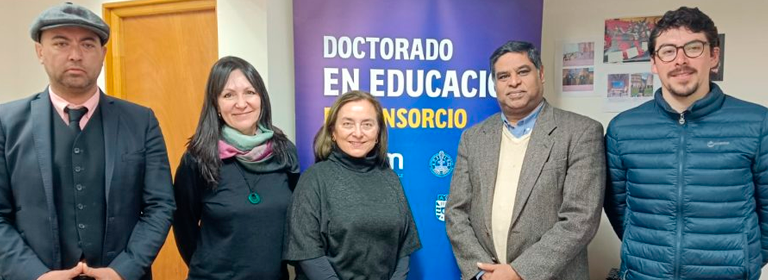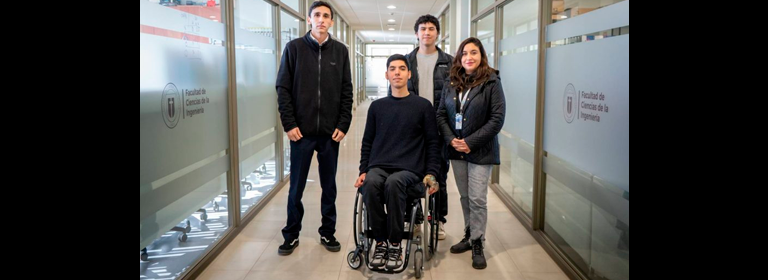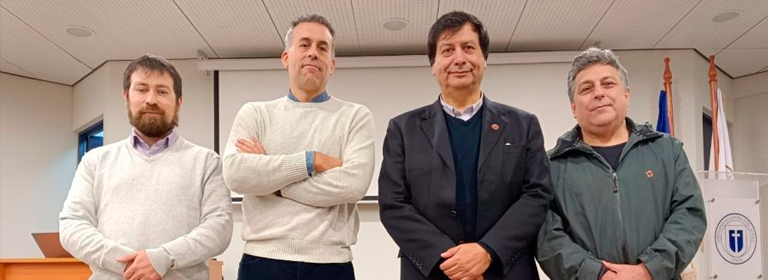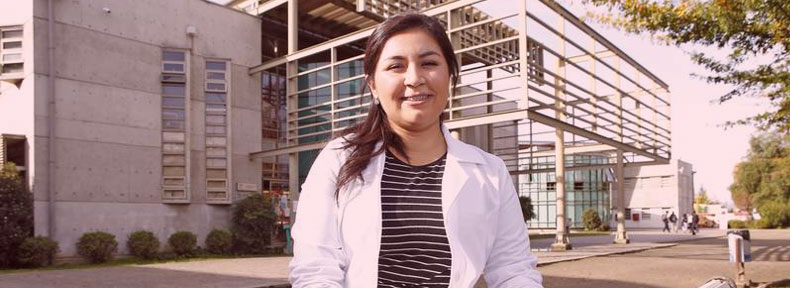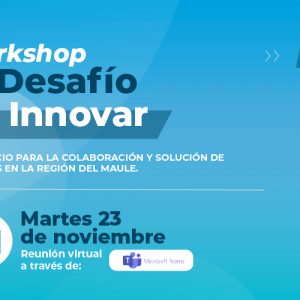The possibility of digital student exchanges was one of the topics addressed by the directors of the Doctorate of Education in Consortium of the Universidad Católica del Maule with the professor of the Universidade Federal de Espirito Santo of Brazil, Kyria Finardi, during her visit to the campus.
 The digital world, which strongly penetrated people’s lives during the COVID-19 pandemic, configured new tools to fulfill academic and professional dreams. The “internationalization from home”, as one of the instruments aimed at enhancing distance skills, was one of the teaching strategies addressed by the Brazilian academic Kyria Finardi, during her visit to the Universidad Católica del Maule (UCM).
The digital world, which strongly penetrated people’s lives during the COVID-19 pandemic, configured new tools to fulfill academic and professional dreams. The “internationalization from home”, as one of the instruments aimed at enhancing distance skills, was one of the teaching strategies addressed by the Brazilian academic Kyria Finardi, during her visit to the Universidad Católica del Maule (UCM).
Finardi, associate professor at the Federal University of Espírito Santo, met with the director of the Doctorate in Consortium Education, Andrew Philominraj, and professors of the postgraduate program.
“The approach or probabilities of international cooperation between our institutions, facing these new times, would focus on different methods of internationalization, such as virtual exchange, considering that less than 1% of students have the possibility of doing an internship or physical mobility, but they can access digital technology,” said Finardi, whose visit was part of a project led by the director of the Master in Applied Linguistics of the campus, Maria Sumonte.
“The exchange can take place in different activities, not only in the doctorate, but also in extension and research, as we have discussed with UCM’s Office of International Relations”, she added.
Professor Philominraj, PhD in Philosophy in English, explained that the internationalization of the doctorate corresponds to a strategic decision. “Through these academic activities, international relations are concretized that make possible a positioning of our doctorate, of the institution and of the Doctorate in Education of the Universidade Federal de Espirito Santo, with which an agreement will be established in the near future. Dr. Finardi met with students and participated in a thesis progress colloquium, an instance that enriched the academic debate and strengthened the ongoing research topic”, he said.
Dr. Sumonte highlighted the advantages of global learning as well.
“UCM explored these instances in pandemics and if we can work on them, it will be of great benefit for students and academics, because they can relate with professors from other institutions where we may share topics, but we see it in a different way,” she said.
Sumonte’s project, which will end next October, is financed by the National Fund for Scientific and Technological Development, Fondecyt, in its Initiation category, and studies the dialogue between culture and language as an element that facilitates inclusion.

